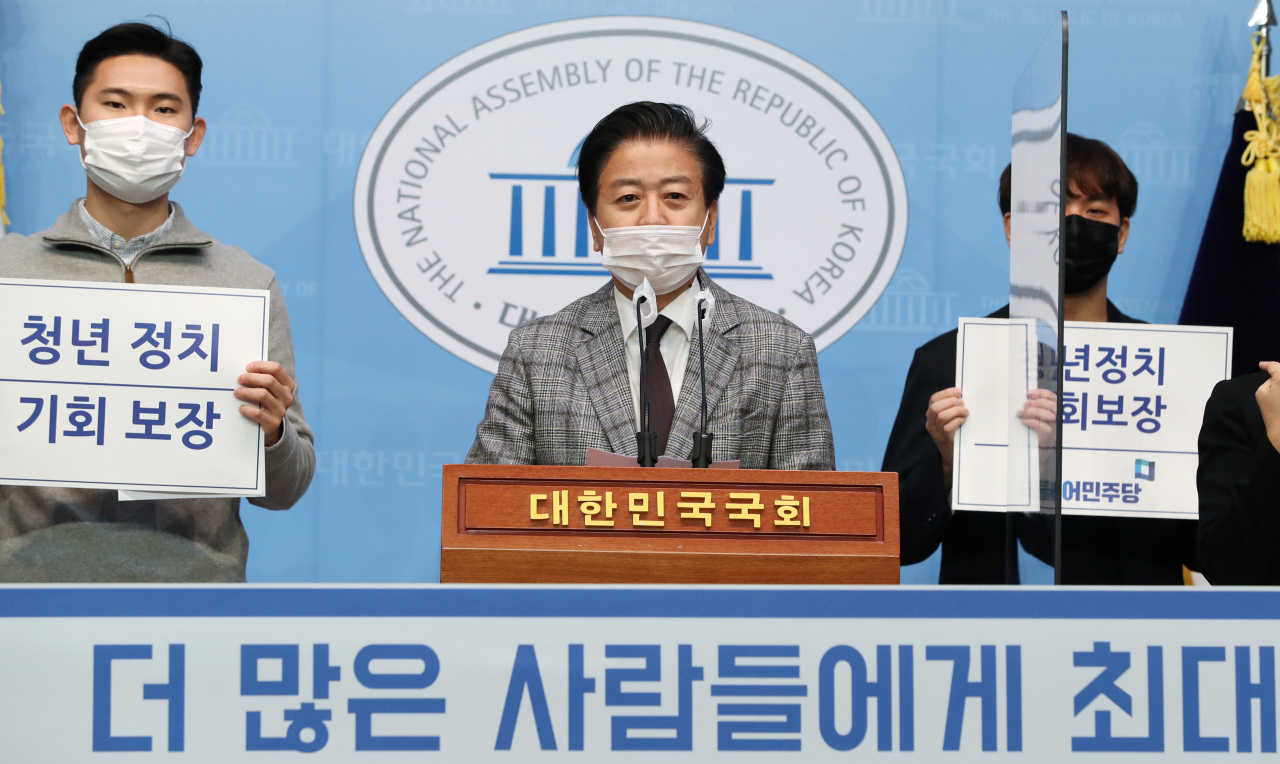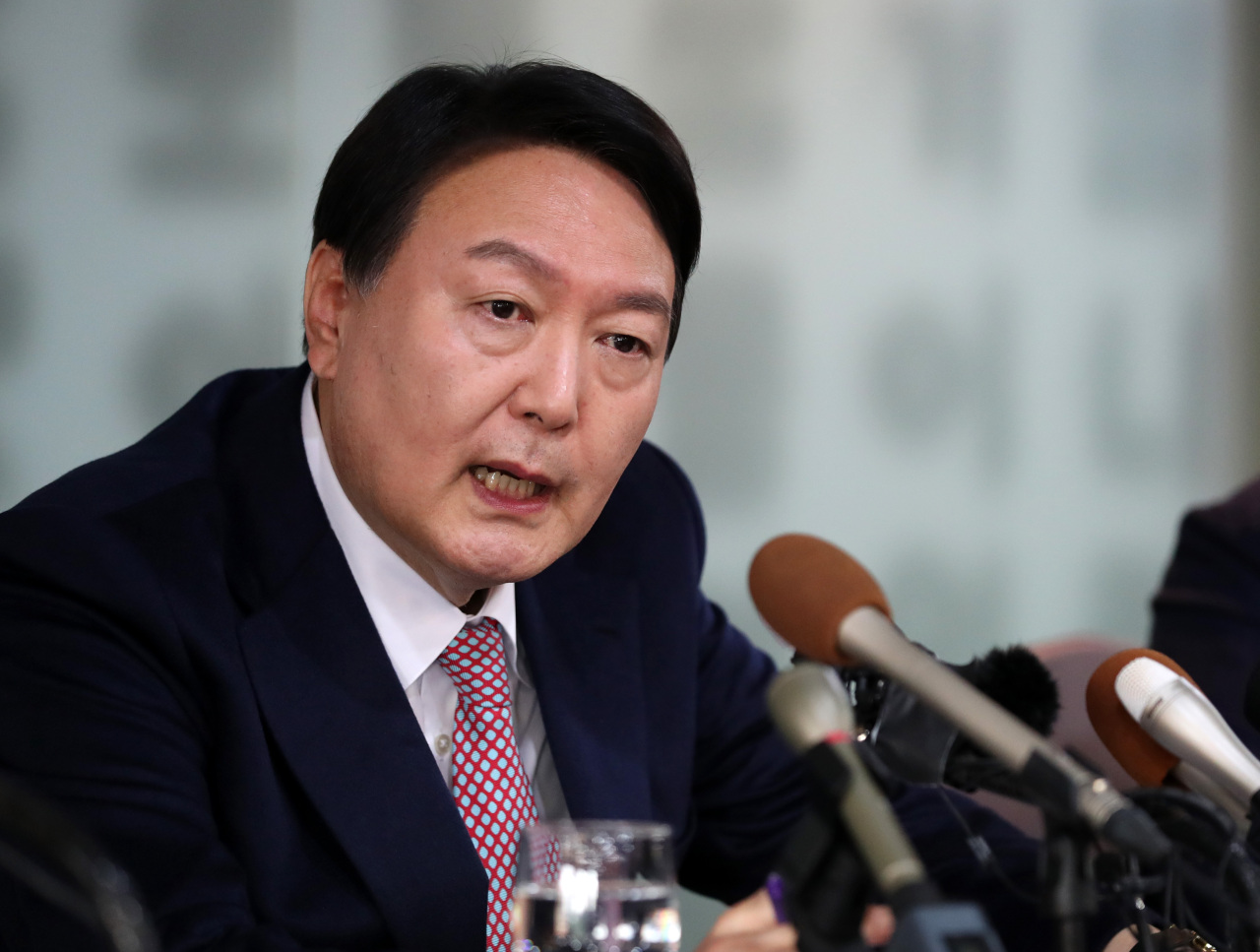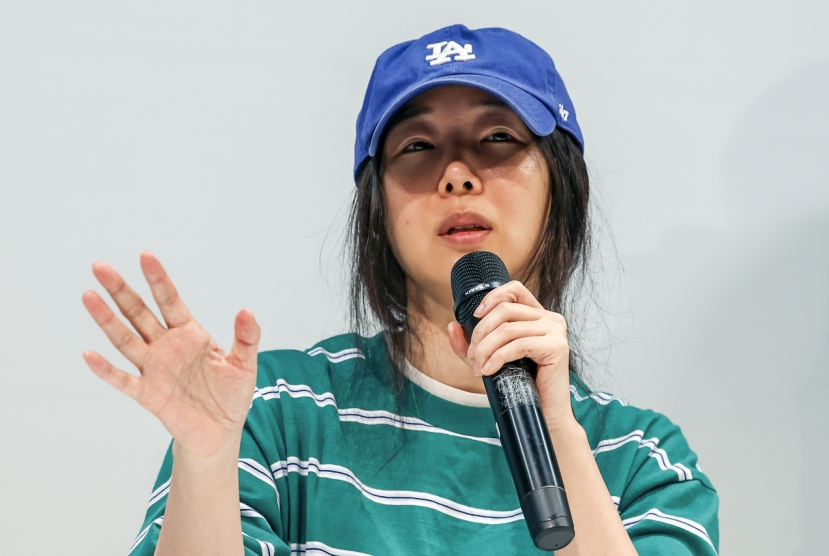Could Korea get teenage lawmakers?
Parties discuss lowering age requirement for electoral posts ahead of elections
By Ko Jun-taePublished : Nov. 14, 2021 - 14:39

South Korea’s political circles are seemingly in agreement over lowering the age bar for people to run for office, a measure discussed from both ruling and opposition parties as a means to match the global trend and assure better representation and diversity in local politics.
The idea has been a traditional ask from the liberal bloc demanding rights for younger generations to actively participate in politics, the latest effort of which came last week with a bill proposed by Rep. Noh Woong-rae of the ruling Democratic Party of Korea.
The bill asks the age requirement for electoral eligibility to be lowered from 25 to 18 when running to be a lawmaker, local council member or head of local government.
While the country grants voting rights to people aged 18 or older, the right to run for office has been barred for those under 25, which has drawn protests and petitions from progressive civic groups in the past.
The legislative proposal has gained widespread support from ruling party members, and the National Assembly is keen to have the bill passed and enacted ahead of the 2022 local elections scheduled for June. A wider voter population could mean different strategies and candidates for parties.
The idea of a lowered age bar has also gained support from the main opposition People Power Party, as its leadership considers appealing to young voters in their 20s and 30s to be beneficial to achieving success in key elections slated for next year, starting with the presidential election in March.
The People Power Party on Wednesday proposed a separate bill containing the same suggestion in a unified move by its lawmakers, showing the party is united behind the initiative, continuing its trend of changes made this year.
The idea has been a traditional ask from the liberal bloc demanding rights for younger generations to actively participate in politics, the latest effort of which came last week with a bill proposed by Rep. Noh Woong-rae of the ruling Democratic Party of Korea.
The bill asks the age requirement for electoral eligibility to be lowered from 25 to 18 when running to be a lawmaker, local council member or head of local government.
While the country grants voting rights to people aged 18 or older, the right to run for office has been barred for those under 25, which has drawn protests and petitions from progressive civic groups in the past.
The legislative proposal has gained widespread support from ruling party members, and the National Assembly is keen to have the bill passed and enacted ahead of the 2022 local elections scheduled for June. A wider voter population could mean different strategies and candidates for parties.
The idea of a lowered age bar has also gained support from the main opposition People Power Party, as its leadership considers appealing to young voters in their 20s and 30s to be beneficial to achieving success in key elections slated for next year, starting with the presidential election in March.
The People Power Party on Wednesday proposed a separate bill containing the same suggestion in a unified move by its lawmakers, showing the party is united behind the initiative, continuing its trend of changes made this year.

For former Prosecutor General Yoon Seok-youl, advocating for the lowered age bar is a way for him to appeal to young voters in his presidential election bid as nominee of the People Power Party. The presidential primary showed him to be less popular with young voters than older ones.
Yoon made a campaign promise to lower the age bar for the presidency as well, vowing to revise the current bar of 40 years or above to 25 years, so that younger generations can maximize their political power when a lot of key issues today are centered on their generation and what they think.
"Don't you want to be (Barack) Obama or (Emmanuel Macron) of South Korea?" Yoon said in a Facebook post Saturday.
"South Korean nationals aged between 18 and 25 have only exercised just half of their political rights despite being adults. In a way, we can say they were deprived of their basic rights as citizens."
South Korea is already behind the trend, Yoon said, as many other countries like France and Germany have already granted electoral eligibility to young voters aged 18 or above. He said the move, when done in Korea, will help lawmakers better discuss issues affecting young people and stay motivated.
His government will also discuss lowering age requirement under the electoral eligibility for presidency, Yoon added, citing that the age requirement for presidency in the United States is set at 35 years.
His rival Lee Jae-myung, presidential nominee of the Democratic Party, has not made official comments on the idea thus far, even though he has been making moves and promises to win the support of those in their 20s and 30s.
Yoon made a campaign promise to lower the age bar for the presidency as well, vowing to revise the current bar of 40 years or above to 25 years, so that younger generations can maximize their political power when a lot of key issues today are centered on their generation and what they think.
"Don't you want to be (Barack) Obama or (Emmanuel Macron) of South Korea?" Yoon said in a Facebook post Saturday.
"South Korean nationals aged between 18 and 25 have only exercised just half of their political rights despite being adults. In a way, we can say they were deprived of their basic rights as citizens."
South Korea is already behind the trend, Yoon said, as many other countries like France and Germany have already granted electoral eligibility to young voters aged 18 or above. He said the move, when done in Korea, will help lawmakers better discuss issues affecting young people and stay motivated.
His government will also discuss lowering age requirement under the electoral eligibility for presidency, Yoon added, citing that the age requirement for presidency in the United States is set at 35 years.
His rival Lee Jae-myung, presidential nominee of the Democratic Party, has not made official comments on the idea thus far, even though he has been making moves and promises to win the support of those in their 20s and 30s.




![[Herald Interview] 'Amid aging population, Korea to invite more young professionals from overseas'](http://res.heraldm.com/phpwas/restmb_idxmake.php?idx=644&simg=/content/image/2024/04/24/20240424050844_0.jpg&u=20240424200058)











![[KH Explains] Korean shipbuilding stocks rally: Real growth or bubble?](http://res.heraldm.com/phpwas/restmb_idxmake.php?idx=652&simg=/content/image/2024/04/25/20240425050656_0.jpg&u=)

